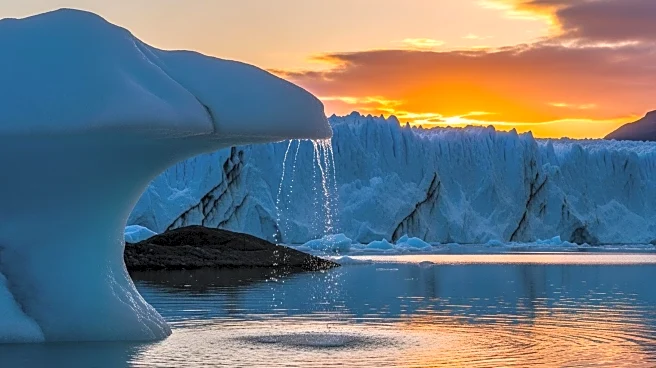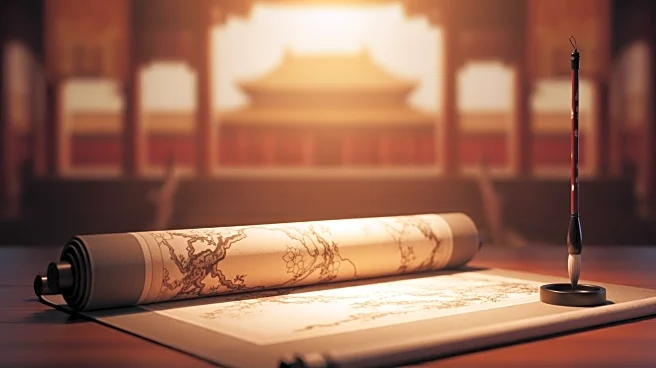What is the story about?
What's Happening?
Recent observations have highlighted the alarming rate at which glaciers around the world are melting, primarily due to human-induced climate change. According to a report by the World Meteorological Organization, glaciers outside the major ice sheets of Greenland and Antarctica lost 450 billion tonnes of ice in 2024 alone. This loss is equivalent to a massive block of ice, enough to fill 180 million Olympic swimming pools. The rapid melting is attributed to the increased burning of fossil fuels, which releases significant amounts of carbon dioxide, warming the planet. In Switzerland, glaciers have lost a quarter of their ice in the last decade, with some smaller glaciers disappearing entirely. This trend is not isolated to Switzerland but is a global phenomenon affecting glaciers worldwide.
Why It's Important?
The accelerated melting of glaciers has profound implications for global water resources and sea levels. Glaciers act as natural reservoirs, storing water as ice and releasing it as meltwater during warmer periods. This meltwater is crucial for stabilizing river flows, especially during dry seasons, and is vital for agriculture, drinking water, and hydropower. The loss of glaciers threatens these water supplies, particularly in regions like the high mountains of Asia, where approximately 800 million people depend on glacier meltwater. Additionally, the increased meltwater contributes to rising sea levels, posing a threat to coastal communities worldwide. The situation underscores the urgent need for global efforts to reduce carbon emissions and mitigate climate change impacts.
What's Next?
If global warming is limited to 1.5°C above pre-industrial levels, it is possible to preserve half of the remaining ice in the world's mountain glaciers. However, current trajectories suggest a warming of about 2.7°C by the end of the century, which could result in the loss of three-quarters of the ice. This scenario emphasizes the importance of international cooperation in reducing carbon footprints and transitioning to sustainable energy sources. Scientists stress that while the situation is dire, there is still an opportunity to preserve glaciers through decisive action on climate change.
Beyond the Headlines
The melting of glaciers also has cultural and historical implications. In the past, glaciers were often seen as mystical entities in Alpine folklore, with their movements linked to spiritual forces. The rapid changes observed today challenge these historical perceptions and highlight the need for a new understanding of the natural world in the context of human impact. The loss of glaciers also serves as a stark reminder of the broader environmental changes occurring due to climate change, prompting a reevaluation of human interactions with the environment.















